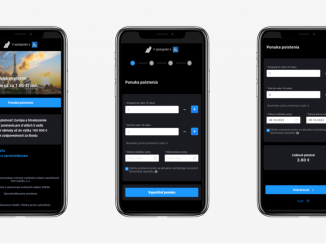
While the mandatory pension contributions are a vital part of securing your financial future, they might not be enough to ensure the retirement you dream of. This is where voluntary pension contributions come into play. Employees who want to enhance their retirement savings and enjoy greater financial security should seriously consider making additional contributions. UMANA NSIDIBE explores the benefits and importance of voluntary pension contributions.
The Evolution of Pension Systems in Nigeria
The Managing Director of Premium Pension, Kemi Oluwashina, shared a heartfelt narrative about the transformation of the pension system in Nigeria, largely due to the Pension Reform Act of 2014. This legislation revolutionized the industry, which has now been in place for two decades. Protect Your Investment with Auto Insurance in Nigeria
The Contributory Pension Scheme (CPS) was initially established in June 2004 under the Pension Reform Act 2004, later replaced by the Pension Reform Act 2014 (PRA 2014). Oluwashina vividly recalled the days when retirees would endure long queues and uncertainty. It was the enactment of this law that brought significant positive changes, turning the tide for millions of Nigerians.
Speaking at a recent Retiree Forum in Lagos, she reflected on how far the industry has come: “Every time I think about it, I’m amazed at the N20 trillion valuation of pension funds today. I was fortunate to be part of this industry from the beginning. I remember the conversations we had back in 2004, 2005, and how far we’ve come since then. Now, people are asking for more – and that’s a good conversation to have.” Everything You Need to Know About Child Education Savings Plans in Nigeria
The Basics of the Contributory Pension Scheme
Under PRA 2014, the Contributory Pension Scheme mandates both employers and employees to contribute a portion of the employee’s monthly salary toward their pension. The law requires a minimum contribution of 18% of monthly emoluments, with employers contributing at least 10% and employees contributing 8%.
As of May 2024, the total value of pension funds in Nigeria had grown by 2.23% month-on-month, reaching N20.23 trillion. By the end of June 2024, it had further increased to N20.48 trillion. Additionally, the number of Retirement Savings Accounts (RSAs) grew modestly by 0.28% in June, reaching 10,381,019 accounts.
The Growing Demand for More
At the forum, many retirees expressed a desire for higher pension payouts. Oluwashina acknowledged this, noting that the conversation has shifted from mere compliance with the law to discussions about adequacy.
She explained, “We started with compliance, but now the focus is on adequacy. Especially with discussions about minimum wage, the idea of a minimum pension naturally follows. But beyond that, the government never intended for your entire salary to go into the pension scheme. They only required a portion – 8% of your basic housing and transport allowances from you and 12% from your employer.”
In most cases, the mandatory contributions alone may not be enough to secure a comfortable retirement. This is where voluntary contributions come in. “The basic idea,” she added, “is to ensure that you at least receive something in retirement. However, if you want more than just the basics, voluntary contributions are essential.”
The Role of Voluntary Contributions
Voluntary contributions (VCs) are optional payments made in addition to the mandatory 18% employer and employee contributions. To start making VCs, you simply need to inform your employer to make the necessary deductions from your monthly salary.
Most pension fund administrators in Nigeria offer tools like RSA calculators on their websites and have staff who can guide you on how much you can contribute as VCs.
According to the guidelines from the National Pension Commission (PenCom), employees in the private and public sectors who already have RSAs under the CPS are eligible to make voluntary contributions. Even retirees who have returned to work can continue contributing to their RSAs through voluntary contributions.
In a circular dated November 16, 2017, PenCom provided guidelines for withdrawing voluntary contributions. For instance, withdrawals can be made once every two years, and 50% of the contributions made by mandatory RSA contributors can be withdrawn every two years. The remaining 50% is reserved to enhance retirement benefits.
PenCom also stipulates that withdrawals are tax-free only after five years of making voluntary contributions. This presents a significant advantage over regular pension contributions, as you have the flexibility to decide both the amount you wish to contribute and the frequency of those contributions, whether monthly, quarterly, bi-annually, or annually.
Why Voluntary Contributions Are a Smart Choice
If you’re aiming to have more than half of your last salary during retirement, voluntary contributions are a strategic option. Given the inflationary environment in Nigeria, where the value of money diminishes over time, relying solely on mandatory contributions may not be enough to sustain your standard of living in retirement.
Beyond the pension industry, it’s also wise to consider other forms of savings and investments, such as joining a cooperative society or investing in property. These additional measures can help you build a more secure financial future and ensure a comfortable retirement.
In conclusion, while the mandatory pension contributions provide a solid foundation, voluntary contributions offer a way to build on that foundation and secure a more comfortable retirement. By taking advantage of the flexibility and benefits of voluntary contributions, you can ensure that your golden years are truly golden. Credit: #PunchNG



![Protect Your Investment with Auto Insurance in Nigeria [2024] 10 Auto Insurance in Nigeria](https://erise.com.ng/wp-content/uploads/2024/08/Auto-Insurance-in-Nigeria-326x245.png)
Be the first to comment